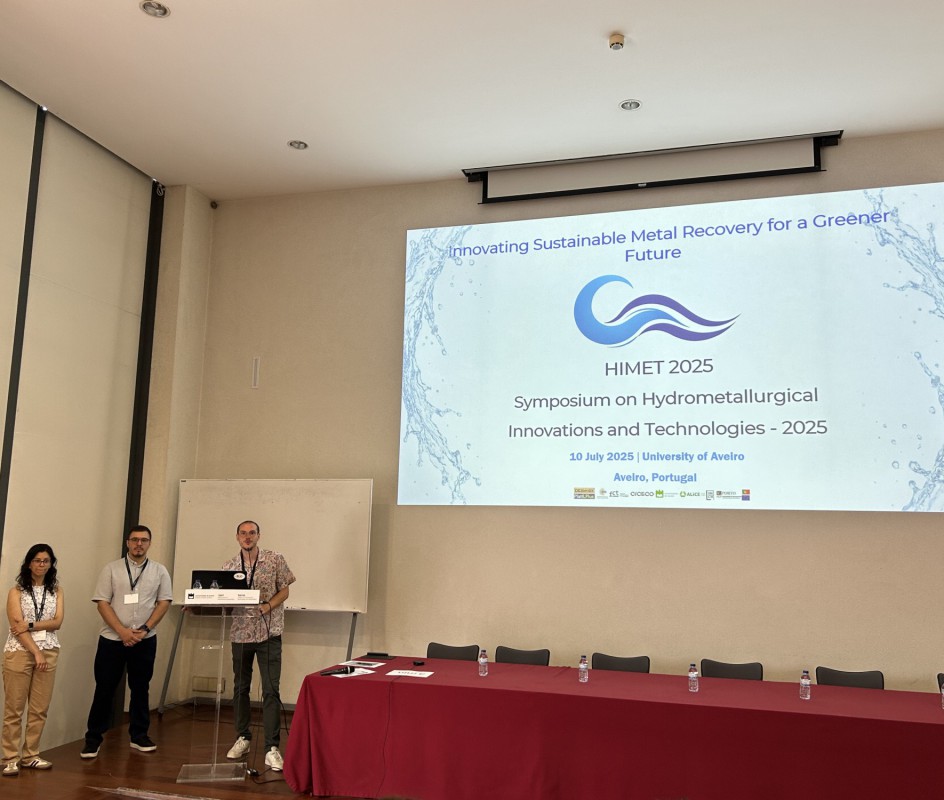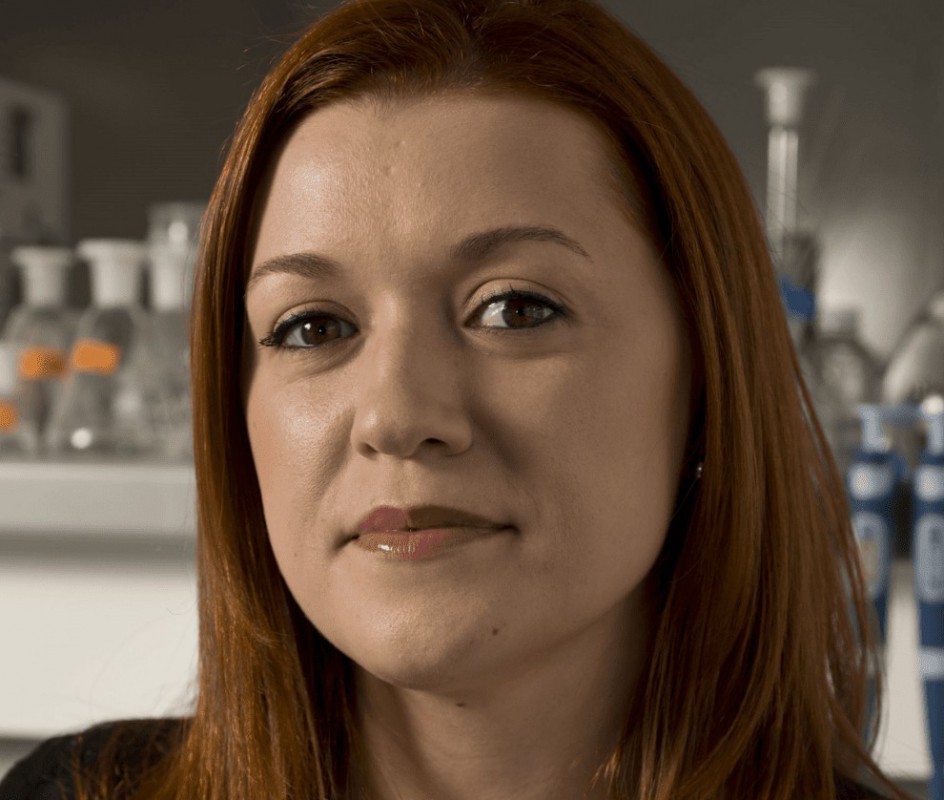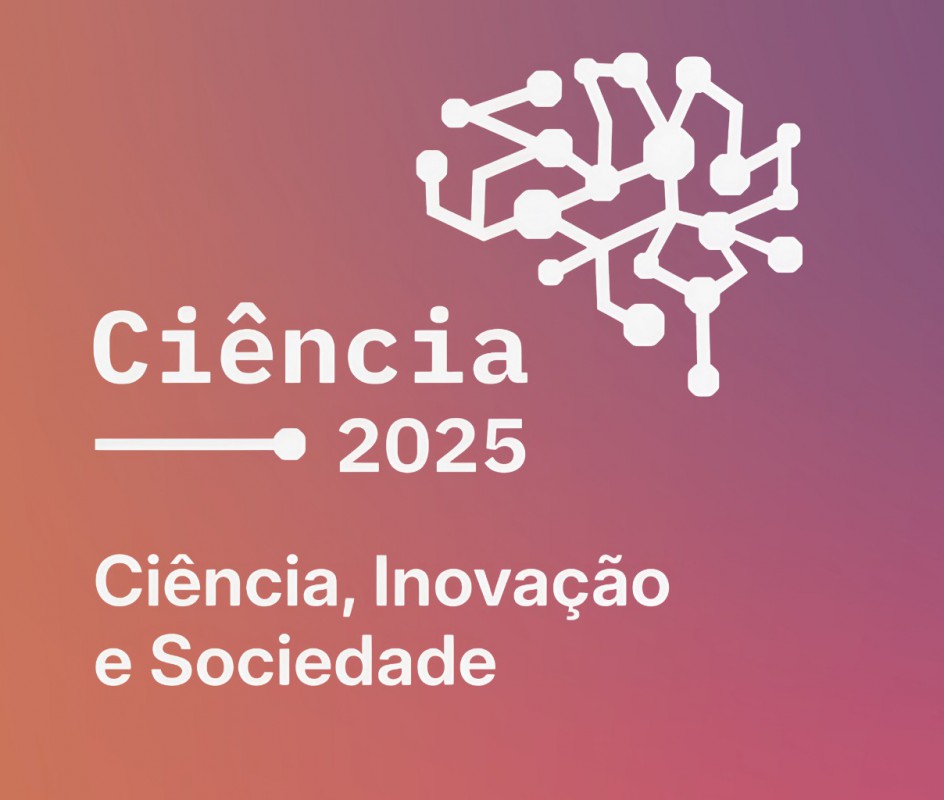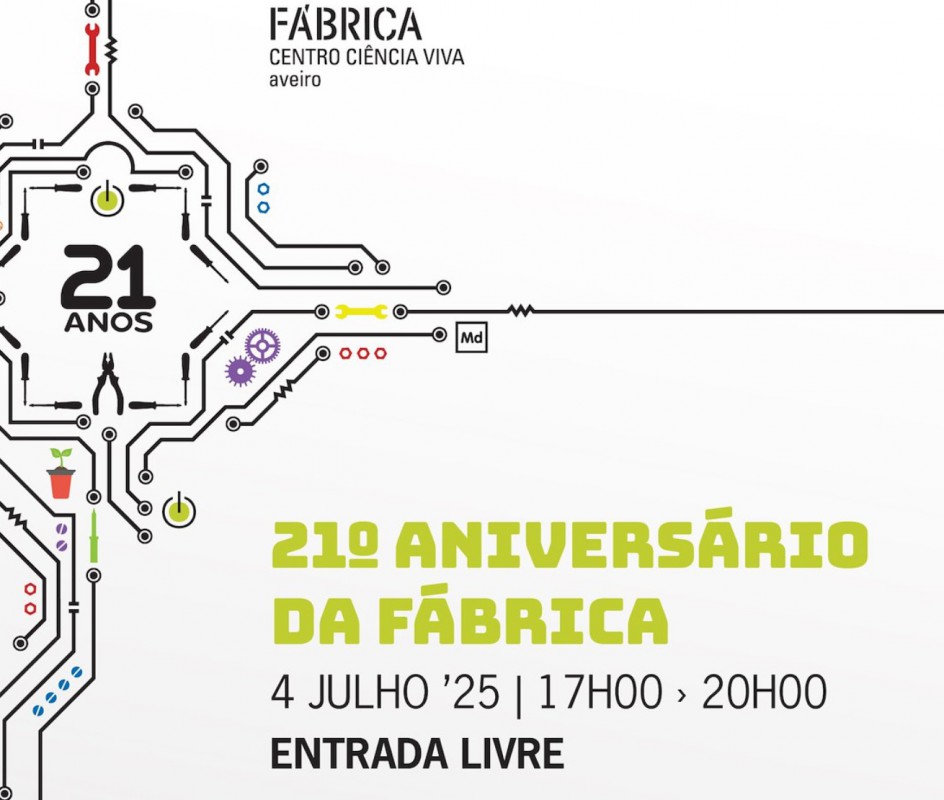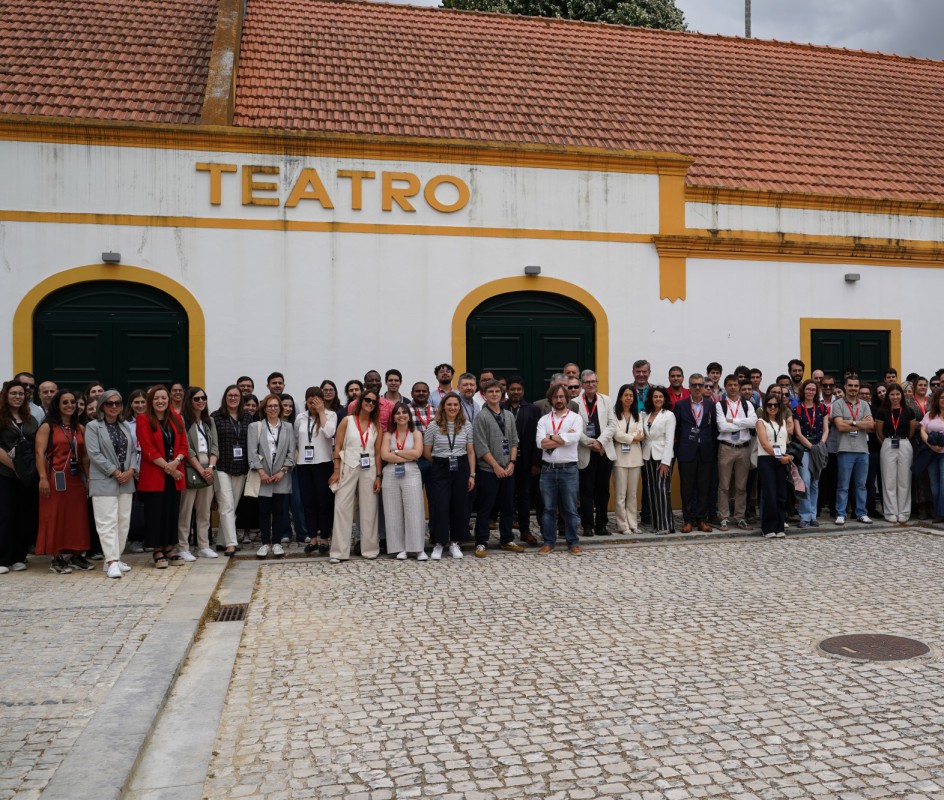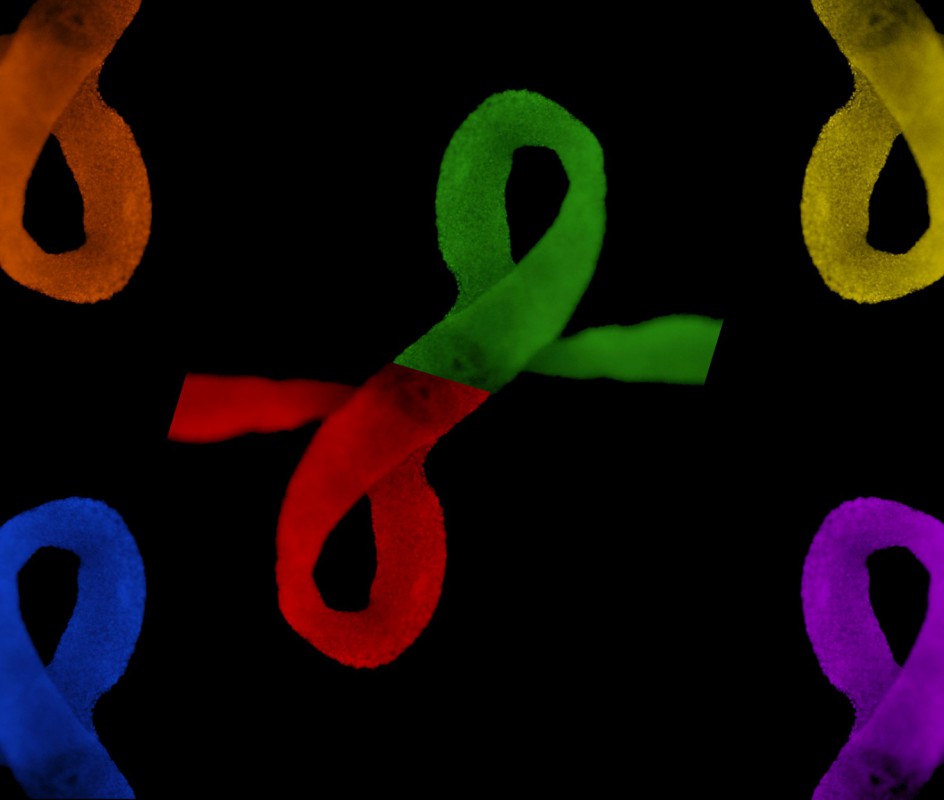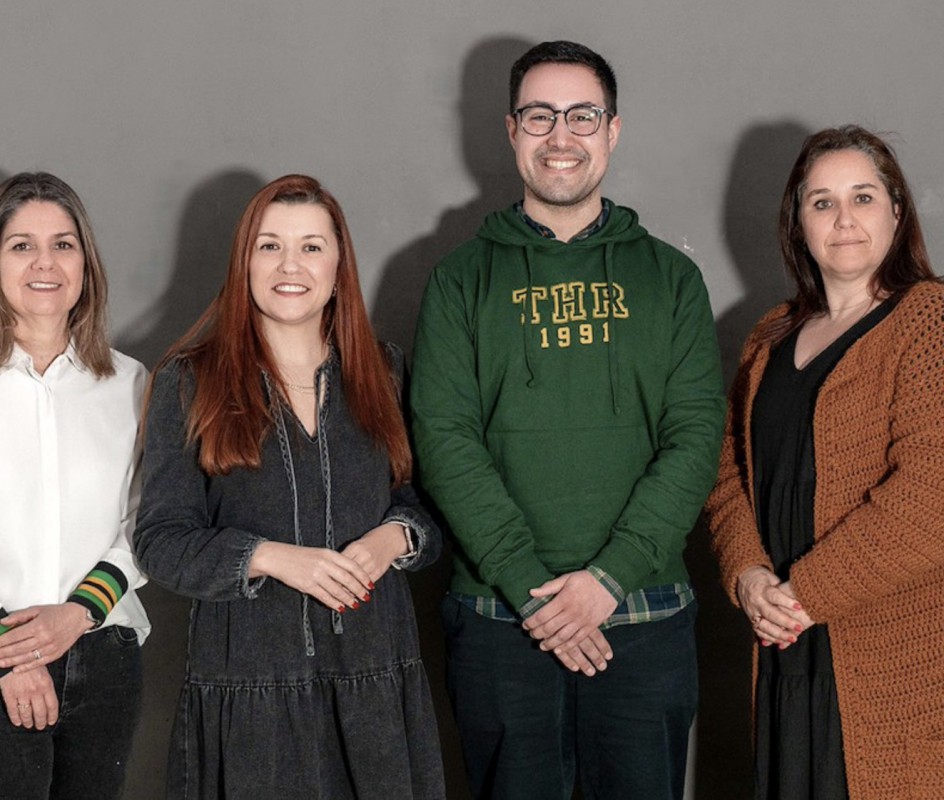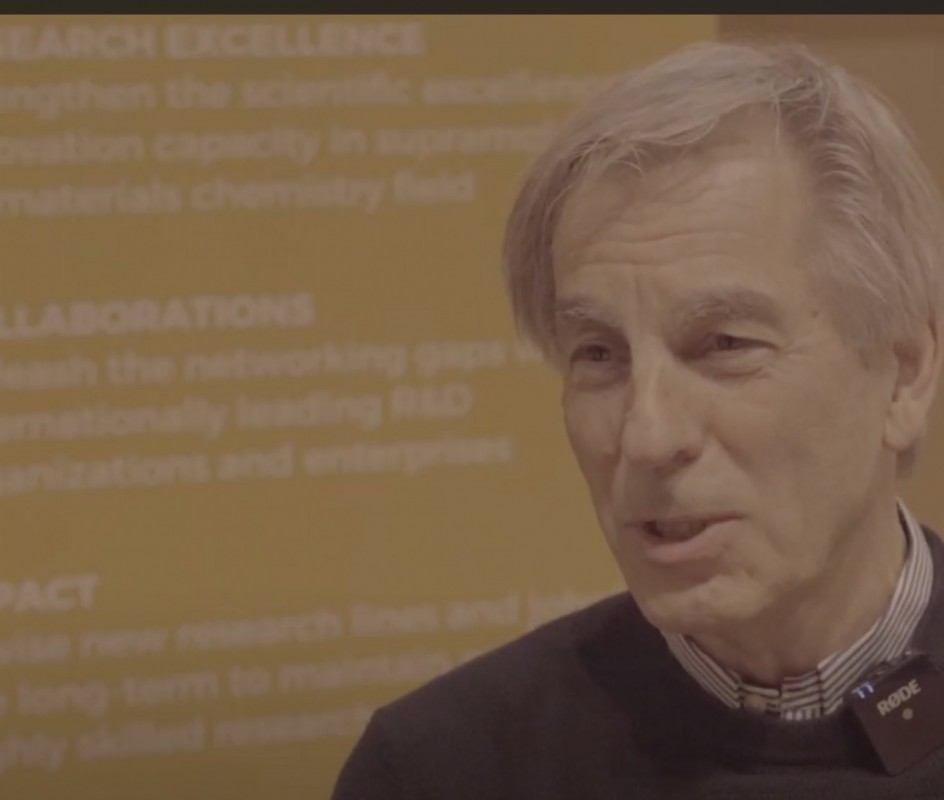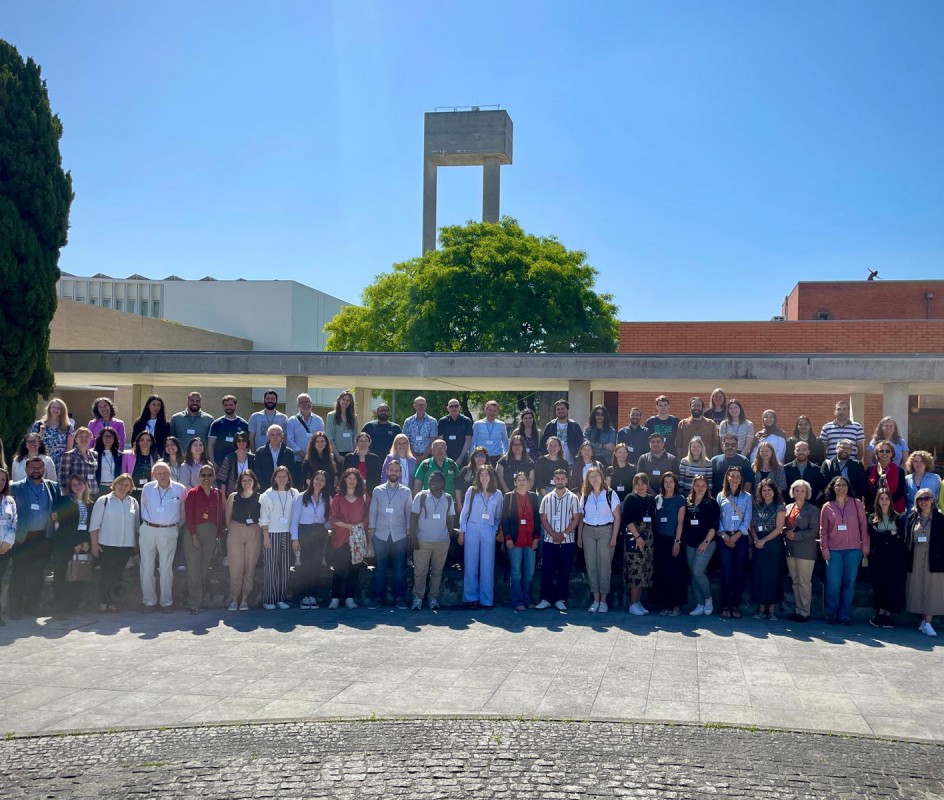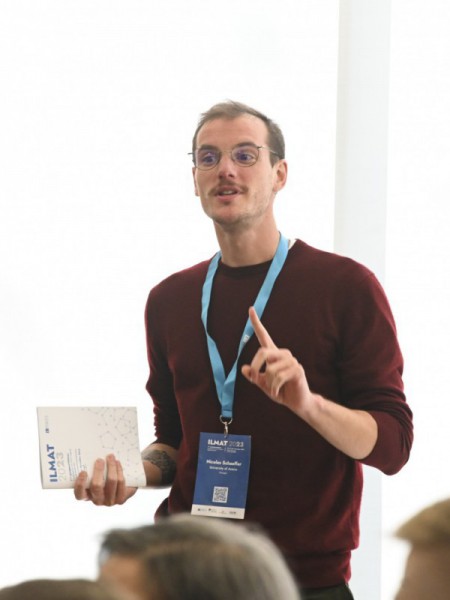
Nicholas Schaeffer, a Junior Researcher at CICECO since 2019, was awarded an ERC starting grant, to set up a research group to design and implement a new class of solvent to improve the selectivity of lanthanide separation compared to traditional solvent extraction. The researcher's path reflects the growing internationalization of scientific efforts: a French citizen who obtained his PhD at Imperial College (United Kingdom), before arriving at the University of Aveiro as a post-doctoral fellow in a European ERA-MIN project. With ERC nomination, Nicholas can continue to work on this project, now with more resources to set up a research group (including funding for personnel, equipment, consumables, and travel).
Sustainable metallurgy stands uniquely poised to reduce the environmental impact of existing mining processes whilst recovering the metal value in end-of-life devices, thereby closing the resource loop. Despite their growing demand and criticality, lanthanide separation remains technologically challenging due to the small monotonic variation in their properties, negatively affecting the economics of their recycling. Given that the separation of adjacent lanthanides occurs over dozens of extraction stages, even seemingly small increases in the separation factors yield measurable environmental and economic gains. Through this project, Nicolas hopes to provide a new methodology for solvent extraction that can be transferable to other critical separations.
Nicolas answered some questions about this important recognition of his work.
How does an idea like this come about?
I'm not sure there was a moment when I shouted "Eureka" and the project appeared clearly before me. The idea is rather the fruition of multiple years of research, and collaboration, as well as many negative answers to other projects, which although at the time were always disappointing permitted me to refine the message. However, if I had to pinpoint one key moment it would be when I obtained some strange results during an attempted separation of platinum group metals a couple years ago. Despite the results being completely useless for that specific work, I thought this unusual behavior could be interesting for other applications.
How to describe the preparation process for an ERC application? Is there any support?
As I'm riding a wave of pure joy since Friday I'm definitely looking at this experience through rose-tinted glasses, I'm not so sure my answer would be so optimistic had I received this question a couple of weeks prior! Overall, the process felt pretty smooth: the fact that the application is concise means more effort is dedicated to the distillation of key ideas and impacts rather than a long literature review for example. The process is further facilitated by the fact that both UA and CICECO provided a lot of support and feedback throughout (mentorship, consultancy for the interview preparation, etc.), making it seem almost more of a team effort than a solo endeavor. I also cannot thank enough all my colleagues, friends, and family who participated and patiently sat through many confusing practice attempts.
What are the “do” and “don’t” issues that could be relevant in an ERC application?
Everyone has their own approach and way of working, as such I don't think there is a better or worse way to do things as long as it works for you. What helped me was to get as much feedback as possible, both from academics within my area to verify if I wasn't writing nonsense but also from friends and family as they really helped clarify the message I was trying to transmit. Also, I would definitely recommend taking full advantage of the resources available at the UA Research office and CICECO, the application process doesn't need to be a solo journey. Finally, carefully read the application guidelines to avoid any last-minute scrambles to complete a section.
How do you manage expectations?
I guess there are two types of expectations, personal ones that you set for yourself and external ones based on what others think you should be achieving. The former don't really change much and the latter is out of my control so I'm not too sure at this moment. I'll probably opt for the strategy of the ostrich and stick my head in the sand for a while.
What does it mean to be an ERC researcher?
In a word, everything! When I see what previous awardees of this grant went on to achieve, I can only aspire to have the same impact one day.
What do you think about the future?
I'll be honest now I'm just looking forward to the holidays, shutting off the brain for a couple weeks, and I'll see once I get back to Aveiro in 2024.
Nicolas Schaeffer is a CICECO Young Researchers Award 2023 Winner, a prize that recognizes the excellent performance of researchers in CICECO. To know a little bit more about Nicholas - because being a scientist is further than research – click “Nicolas Schaeffer | CICECO Young Researchers Award 2023 Winner”
Related Articles
We use cookies for marketing activities and to offer you a better experience. By clicking “Accept Cookies” you agree with our cookie policy. Read about how we use cookies by clicking "Privacy and Cookie Policy".


